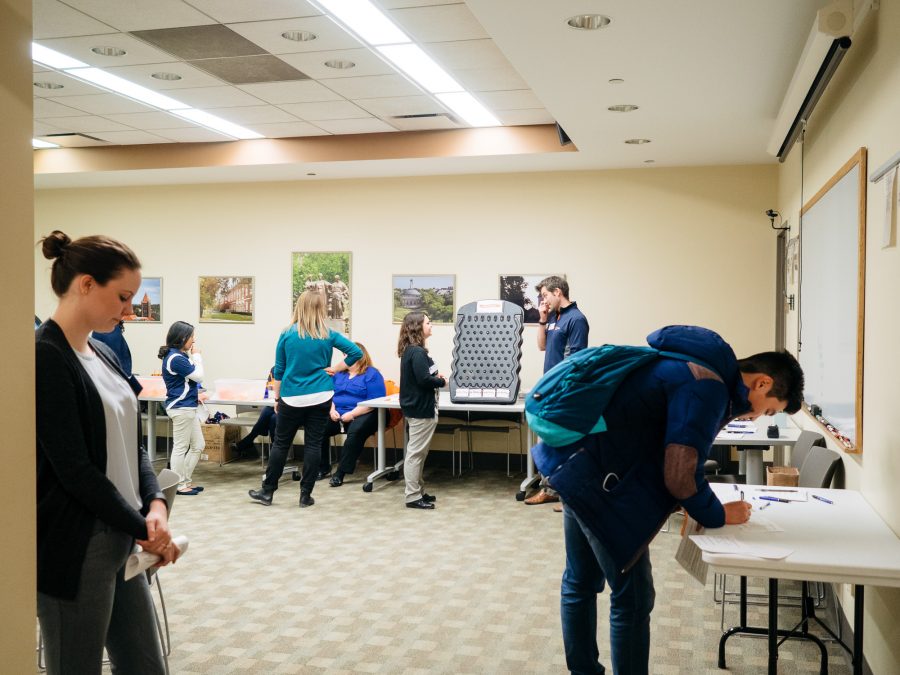Students working through college reap additional benefits
Students check in at the Career Center on Jan. 27.
Nov 1, 2016
At the University, 73 percent of students received jobs after graduating, according to Illini Success, an initiative from the Career Center. The project is a campus wide effort to track recent alumni employment.
However, prior to graduation, a large amount of students on campus are working part-time jobs throughout the University.
With hundreds of jobs available on-campus each semester, there are opportunities for students to find employment.
But for students who are employed, one of the key responsibilities is realizing there are advantages and disadvantages that come with having a job.
A student’s social life can be one of the many aspects affected by working a part-time job throughout college.
Get The Daily Illini in your inbox!
“Working doesn’t prevent extracurricular activities, but it does limit them,” said Sydney Cooper, sophomore in Education. But working “allows me to socialize with people I wouldn’t talk to in class.”
Yet many students are not new to the job market, as many start working in high school. Cooper said she has been employed since turning 16. However, she left her high school job to work for Campus Recreation.
“I got hired at the beginning of last September, so I was only jobless for two to three weeks,” Cooper said.
Although students might find it difficult to balance school and work, Kelly Marshall, junior in ACES, said there are benefits to working as a student.
“It could help make you (become) more dedicated,” Marshall said. “You have so much going on outside of school, you learn to put that to your school work too.”
For some students, working part time is part of their financial aid package through University work-study programs.
These academic considerations help when deciding how students will work the minimum amount of hours for work-study. For example, Marshall works at the Illini Union and she said her employers are flexible in helping her meet the 10-hour work-study requirement.
Although there are some academic benefits, programs like the Federal Work-Study program consider academic progress and class schedules when assigning jobs and the amount of hours a student must work, according to Federal Student Aids.
Last year there were 10,637 undergraduate students holding employment positions. These numbers did not include the students not involved in the federal work-study program that worked independently of federal programs.
“Besides earning funds and reducing the need to borrow loans, student employees tend to have higher GPAs and graduation rates,” said Director of the Office of Student Financial Aid, Daniel Mann.






